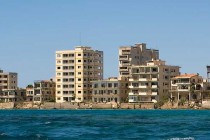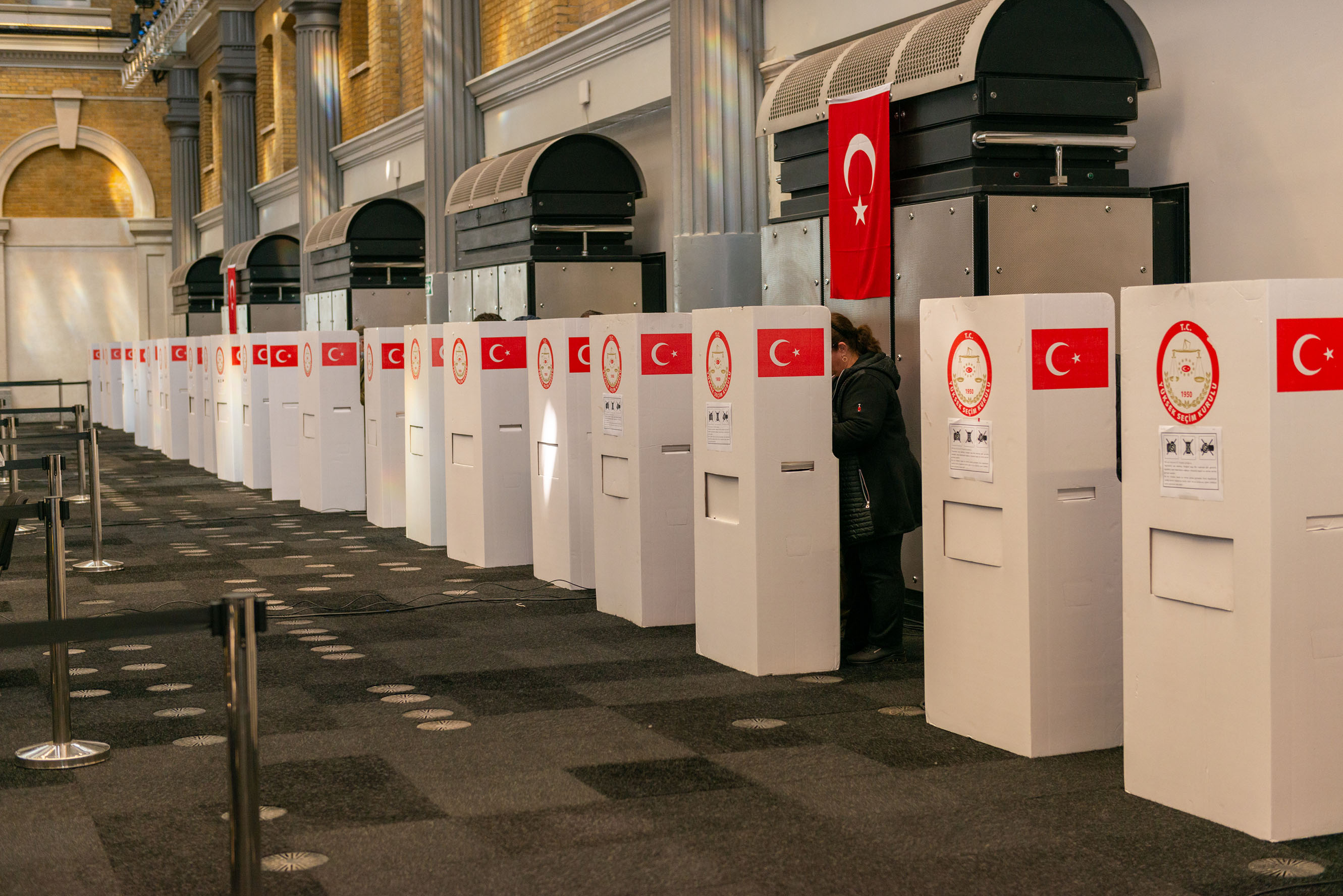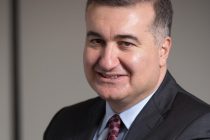The recent European Parliament Elections saw over 35 candidates of Turkish, Turkish Cypriot or Turkish Kurdish origin stand for a range of political parties, from communist to conservatives, in multiple European Union Member States, including France, Belgium, Greece, Cyprus and the Netherlands.
Most of the candidates failed because they were either low down their party lists or were from parties representing minorities, so had little chance of electoral success. However, it was striking that where in 2019, six candidates hailing from Turkiye or of ethnic Turkish origin succeeded in becoming a Member of the European Parliament (MEP), that number had dropped to three in 2024.
Turkish Cypriot Niyazi Kızılyürek failed in his European re-election bid in Cyprus, while long-standing German MEP İsmail Ertuğ and French MEP Agnes Evren both stood down from the European Parliament in 2023 to take on different roles.
Ertuğ has become the Sustainable Mobility Europe Officer at Deutsche Bahn (state-owned German Rail), while Evren, who is a member of centre-right Les Républicains, has been elected as a Senator for Paris and is also president of her party’s 15th Arrondissement of Paris branch.
Three of the six MEPs of Anatolian ancestry did hold on to their seats. Two are from Germany: Özlem Demirel, who was re-elected for The Left Party, and Engin Eroğlu, who was re-elected for the centre-right Free Voters Party. The third is Evin İncir, who represents Sweden Social Democratic Party at the European Parliament.
T-VINE takes a closer look at all three newly re-elected MEPs.
Özlem Demirel
Born in Malatya in March 1984, Özlem Demirel migrated to Germany with her parents and two older brothers when she was aged 5 years old. The family left Turkiye because Demirel’s father, a teacher by profession, had been repeatedly arrested and tortured for resisting the military coup of 1980 led by General Kenan Evren. The family first settled in Bilefeld before relocating to Cologne.
Her father’s left wing views heavily influenced the young Demirel, who was outspoken at school and joined the youth section of the Democratic Workers Union (DIDF) as a teenager, where she advocated equal rights for refugees and immigrants in Germany.
Demirel studied at Bonn University, graduating in political sciences. During her time as a student, her political activism continued to grow. She served on the DIDF Youth Central Executive Board and also became the North Rhine-Westphalia State Student Representative.
She was elected as a Cologne Municipality Council Member, and later a North Rhine-Westphalia State (NRW) Parliament Member. She also sat on the DIDF Board of Directors and, in 2012, became the union’s chairwoman.
Between 2005-2007, Demirel was a member of the Party of Democratic Socialism (PDS). She was a co-founder of The Left Party (Die Linke) in 2007, a hard left party which promotes anti-capitalism, anti-fascism, and anti-militarism, and is neutral on European integration. It is the furthest left-wing party of the six represented in the Bundestag (German Parliament), and currently has 28 MPs out of the 736 that sit in the German Parliament.
Demirel was first elected to the European Parliament (EP) on 24 May 2019. She went on to become both a vice chair of the Subcommittee on Security and Defence, and also the Delegation to the EU-Turkey Joint Parliamentary Committee.
She has voted against a resolution condemning the Russian invasion of Ukraine and calling for the arming of Ukraine, claiming this would increase the suffering of Ukrainians. She has also spoken about the need for an immediate ceasefire in Gaza, calling out the West for its role in the conflict.
Of Turkish Kurdish Alevi heritage, 40-year-old Demirel is married and the mother of two children.
Engin Eroğlu
Like Demirel, Engin Eroğlu became a political activist in his teens. Born in 1982 in Schwalmstadt, a small town in central Germany, and one of three siblings,Eroğlu joined Bündnis 90/Die Grünen (Alliance 90/The Greens, simply known as the Greens) when he was 15 years old, rising to become district chairman of the party in Schwalm-Eder and a local councillor.
Eroğlu, a second generation Turk, left the Greens in 2012 aged 29 to join Freie Wähler (Free Voters).
Initially, Freie Wähler was a group of free voter associations across Germany who didn’t identify with any political party, preferring regional and local political representation and issues to national structures and policies.
Over time, this collective took on the form of a party and currently sits as a liberal, pro-European centre-right party in German and EU politics.
Eroğlu rapidly rose through the party ranks, starting as Youth Leader of Freie Wähler in the state of Hesse in 2013, before serving as deputy chair of the regional party between 2014 and 2017.
He was appointed chair of Freie Wähler Hesse in 2017, which he held for two years before being elected the party’s deputy federal chairman.
During this time the party expanded its focus beyond regional politics, standing candidates in the European elections.
Freie Wähler won its first MEP in 2014, which became two in the 2019 EP Elections. Eroğlu was one of the two elected, entering the European Parliament at the age of 37, to the delight of his family.
In June 2024, Freie Wähler increased their MEPs to three, with Eroğlu re-elected for the party.
With a background in banking and finance, Eroğlu is a member of the Committee on Economic and Monetary Affairs and the Committee on Foreign Affairs of the European Parliament between 2019 and 2024.
He was also a member of the Delegation for EU-Turkiye Relations and a member of the Delegation to the EU-Kazakhstan, EU-Kyrgyzstan, EU-Uzbekistan and EU-Tajikistan Parliamentary Cooperation Committees, as well as for Relations with Turkmenistan and Mongolia (DCAS).
Evin İncir
Originally from Diyarbakır, southeast Turkiye, and of Kurdish descent, Evin İncir has been a Member of the European Parliament since 2019, where she represents the centre-left Swedish Social Democratic Party.
During her time as an MEP, İncir has served on the Committee on Civil Liberties, Justice and Home Affairs. She has also been part of the Parliament’s delegations to the EU-Turkey Joint Parliamentary Committee since 2019 and to the Euro-Mediterranean Parliamentary Assembly since 2021.
İncir is a co-president of the European Parliament (EP) Anti-Racism and Diversity Intergroup, the vice-chair of the European Parliament Intergroup (EPI) on Palestine, and a member of the EPI on LGBT Rights, the EPI on Trade Unions, and the EPI on Western Sahara. She has spoken out about the lack of diversity and representation of ethnic minorities in EU institutions.
In an interview she gave to The Parliament Magazine back in 2020, İncir said: “I think it’s a big shame that we have such a lack of diversity. The motto of the European Union is ‘United in Diversity’ but we only really accommodate the national diversity of the countries within the European Union. Our citizens are very diverse in terms of their racial, ethnic and religious backgrounds, so the lack of diversity within the EU institutions is something that I think we need to take much more seriously.
“This lack of diversity has been discussed in the European Parliament in recent weeks, as well as the institutionalised racism and discrimination that we, unfortunately, see in the EU institutions and in the Member States. It is wrong that people are not able to get the jobs they want – and this is not based on their qualities or their qualifications – but on the colour of their skin. I think to start with, awareness is the most important element. After that, we need to put strong anti-discrimination laws in place.”
Her work driving forward diversity, inclusion and social impact led to her being given an award at The Parliament Magazine’s annual MEP Awards in June 2022. The same publication had previously awarded İncir the Best Newcomer award in December 2020.
Last year she, together with fellow MEP Vlad Gheorghe of Romania, were the joint recipients of the Promoting European Value Award. She was again presented this award in March 2024, alongside Irish MEP Frances Fitzgerald.
Regarded in Sweden as one of the most capable politicians of her generation, İncir is not only keen to push forward her internationalist and socialist beliefs, but also to help resolve the long running Kurdish dispute in Turkiye and uses her platform to raise the issues Kurds in the Middle East and Turkiye face.
Prior to being elected an MEP for the first time back in 2019, İncir told Kurdish publication Rûdaw: “There are many Kurdish friends in Europe. But it is very important to have a Kurdish candidate in the European Parliament in order to explain the Kurdish problem and the experiences of the Kurds to all of Europe and to defend the rights of this people.”
Now aged 40, İncir’s family moved to Sweden from Lice in southeast Turkiye when she was aged six. She grew up in the suburb of Bergsjön in the Swedish city of Gothenburg, and today lives in Uppsala, which has a large Kurdish population.
Main photo, top left clockwise, Engin Eroğlu (via Facebook), Evin İncir and Özlem Demirel (photo taken Oct. 2019 by GUE/NGL – F70A8900, CC BY-SA 2.0)





